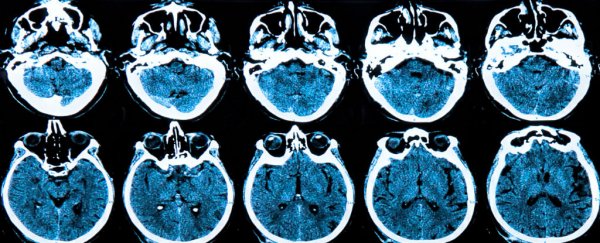There is no known cure for Huntington's disease - an hereditary disease that damages the nerve cells in the brain so severely, it can lead to problems with movement, cognition, and behaviour. People affected - around one in every 10,000 in the US - eventually need full-time care and have a low quality of life and shorter life expectancy.
Now scientists in Canada report a promising step towards a potential treatment. The team has developed a drug called IONIS-HTTRx which 'silences' certain genes and inhibits the production of the huntingtin protein – the protein caused by a mutation in the huntingtin gene, which children of people with Huntington's disease have a 50/50 chance of inheriting.
The drug has so far only been found to be effective in groups of mice and monkeys, but limited testing on humans has already begun. In mice with a disease similar to Huntington's, improvements in motor control were observed one month after treatment began; after two months, the motor control deficits had disappeared completely.
In monkeys, levels of the huntingtin protein inside the brain were shown to have dropped by 50 percent shortly after they'd started their treatment.
Meanwhile, no side effects of taking IONIS-HTTRx were observed in either the mice or the monkeys, which gives the research team hope that this could open up some genuine opportunities for those who are living with (or at risk of developing) Huntington's disease.
"It is very exciting to have the possibility of a treatment that could alter the course of this devastating disease," said principal investigator, Blair R. Leavitt from the University of British Columbia, adding that the drug focuses on treating the symptoms of Huntington's rather than the underlying causes.
In the human clinical studies now underway, participants are given four spinal injections each separated by a month.
IONIS-HTTRx effectively works like a dimmer switch, reports The Telegraph, turning down the impact of the gene mutation and thus the level of protein it produces, although it doesn't destroy the mutation itself.
The team's findings are due to be presented at the American Academy of Neurology's 68th annual meeting in Vancouver next month.
What makes the drug particularly exciting is that it can reverse the effects of Huntington's as well as stopping further deterioration: efforts to try and tackle the disease have been progressing at a slow rate, but IONIS-HTTRx could give hope to the thousands of people with Huntington's disease across the world – and of course the generations who will eventually follow them.
